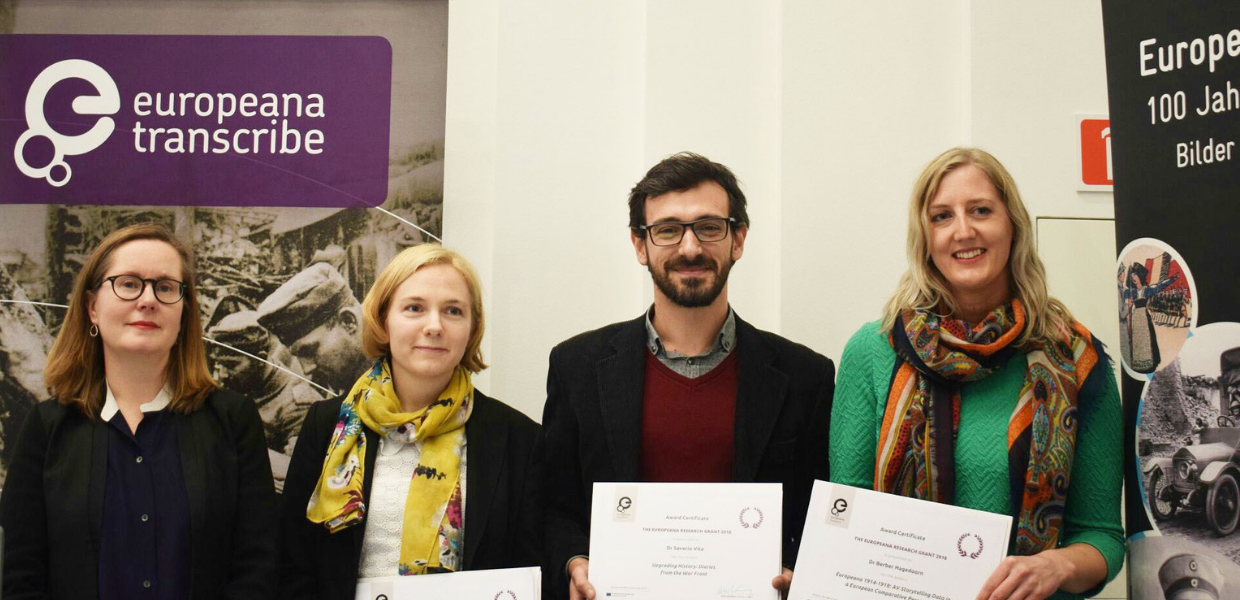Scholars research World War One
Early-career scholars harness digital cultural heritage in First World War research projects, thanks to the Europeana Research Grants Programme.

- Title:
- (L-R): Professor Lorna Hughes - Chair of the Europeana Research Advisory Board with the 2018 Europeana Research Grant winners: Dr Elizabeth Benjamin, Dr Saverio Vita, Dr Berber Hagedoorn
- Creator:
- Europeana Foundation
- Date:
- 2018
- Institution:
- Europeana Foundation
- Country:
- The Netherlands
- Copyright:
- CC BY-SA
Bringing Europe’s galleries, libraries, museums and archives within digital reach allows researchers to access a much wider scope of sources. Now in its fourth year, the Europeana Research Grants Programme awards funding for events that bring together cultural heritage professionals and researchers. The theme for the 2019 grants is digital cultural heritage for open science.
For the third Europeana Research Grants Programme, early-career scholars were invited to submit proposals for projects connected to the theme of the First World War and making use of sources from the Europeana 1914-1918 collection, as well as digital tools. High-quality responses came in from all over Europe. Professor Lorna Hughes, Chair of the Europeana Research Advisory Board, presented the recipients of the 2018 Europeana Research Grants with their awards at the House of European History in Brussels in November 2018.
The three winning projects, which are running throughout 2019, map soldiers’ itineraries using their personal diaries, create a dynamic visualisation of wartime postcards, and research the use of wartime content in professional storytelling.
In April 2019, after a thorough content evaluation, CLARIN integrated 135,000 Europeana records into their Virtual Langauge Observatory (VLO) portal. This content evaluation is a valuable best practice reference showing how Europeana sources can be integrated into platforms for research purposes. The evaluation clearly shows that the quality of the content and metadata made available to Europeana by cultural heritage institutions is crucial to its ability to be used in research.
In June 2019, Europeana Research set up its first strategic plan to maximise the impact of digital cultural collections in research. It illustrates the critical shift of focus from data to community-driven impact. Strengthening the links between the cultural heritage and research sectors/networks, the plan looks at how to better understand researchers’ needs and habits and then translate them into improvements in digital collections and tools.

